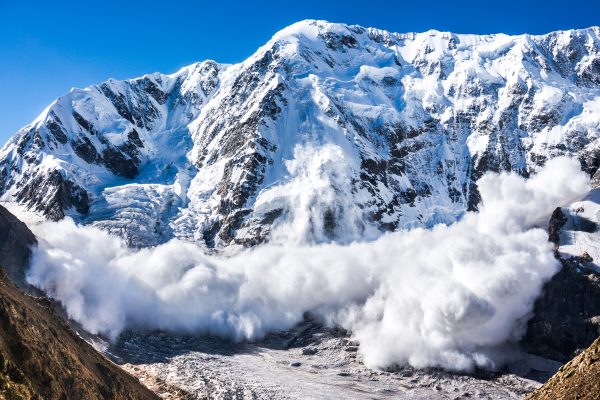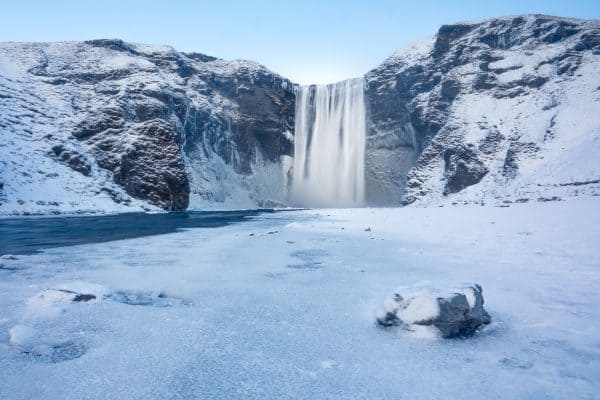Have you also wondered how much time you have before the ground freezes when winter comes? That's what we will talk about today. We've done the research and here's what we found out.
It'll take around 5 consecutive days of freezing temperatures before the ground freezes. But aside from air temperatures, the amount of water in the soil, soil type, and snow coverage would also influence how fast the ground freezes.
Keep reading to know more about the contributing factors that make the ground freeze solid. We will also teach you how to know if the ground is frozen and when it has already thawed. Let's get this started!
NOTE: WE MAY GET A COMMISSION IF YOU DECIDE TO MAKE A PURCHASE THROUGH THESE LINKS. THERE'S ADDITIONAL NO COST TO YOU. CHECK THE BOTTOM OF THE PAGE FOR MORE INFORMATION.
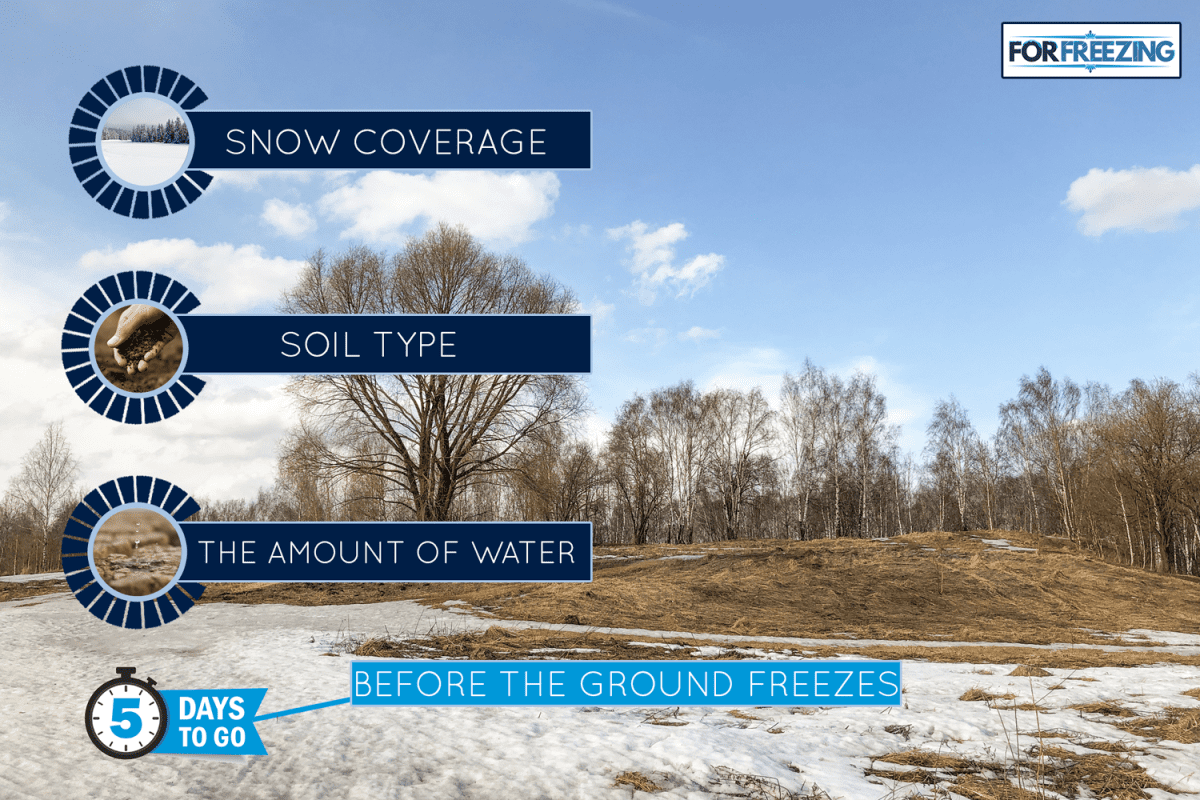
How soon does the ground freeze?
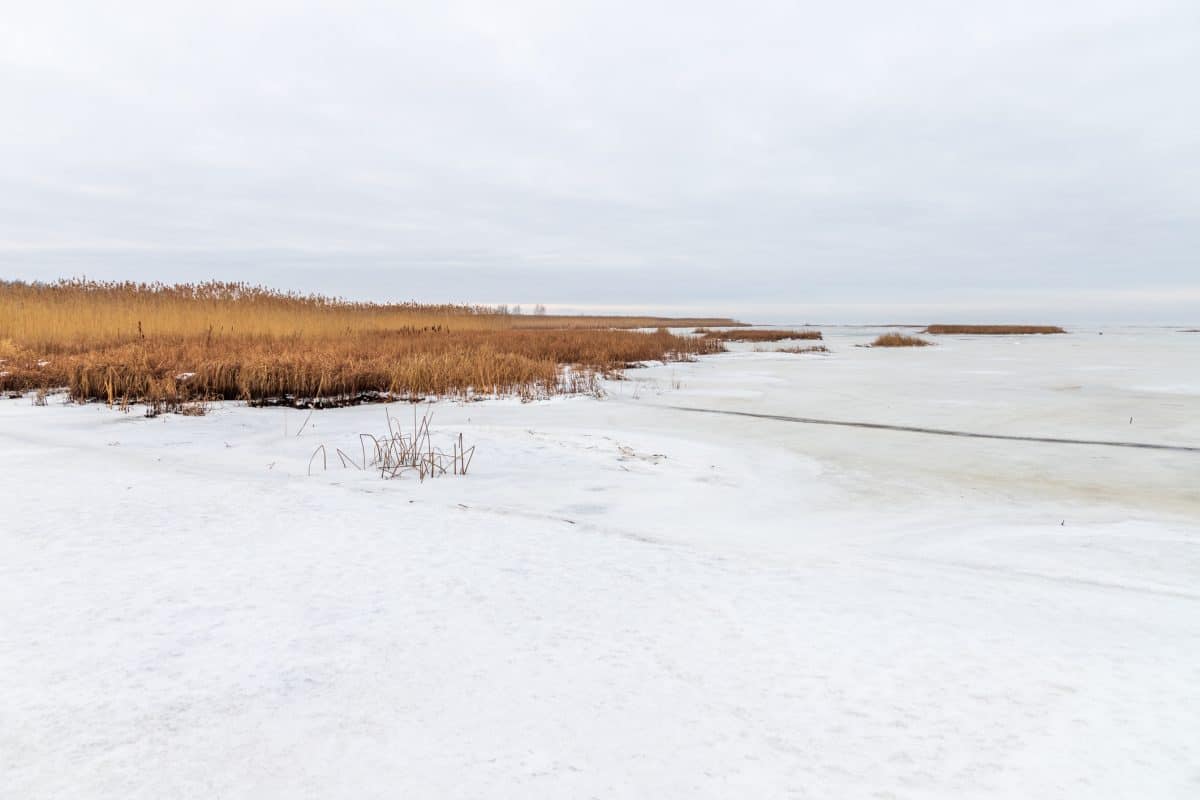
Frozen soil can be as tough as concrete. This means it will be difficult to dig through it if you need to access your below-the-ground utility pipes.
When the ground is covered with snow, does it automatically mean that the soil below it is frozen already? How much time do you have when winter comes until the soil is rock solid?
To answer the question, the ground freezes in about 5 successive days of freezing temperatures or when the air temperature drops below 32 degrees Fahrenheit.
But this doesn't necessarily mean that all the layers of the soil will automatically freeze. It is wrong to assume that simply because the temperature has dropped to freezing point, the ground would freeze already. Different factors would affect this process aside from air temperature.
The most important thing to note here is this: the ground freezes not because the soil freezes but because of the water which is present in the soil. It is the water in the soil that freezes.
Soil is porous and absorbs water which can be retained in its pores. When the conditions for freezing are met, the water freezes.
What you now have is an interconnected network of water that has turned into ice and it then binds together with the soil particles which makes the ground frozen solid.
And as more water freezes, the strength of the soil increases. Hence, it is harder and it would be difficult to dig through it.
However, all the water in the soil won't turn into ice at the same time when the air temperature is below the freezing point. It is also influenced by the amount of water in the soil, soil type, and snow cover.
Air Temperature
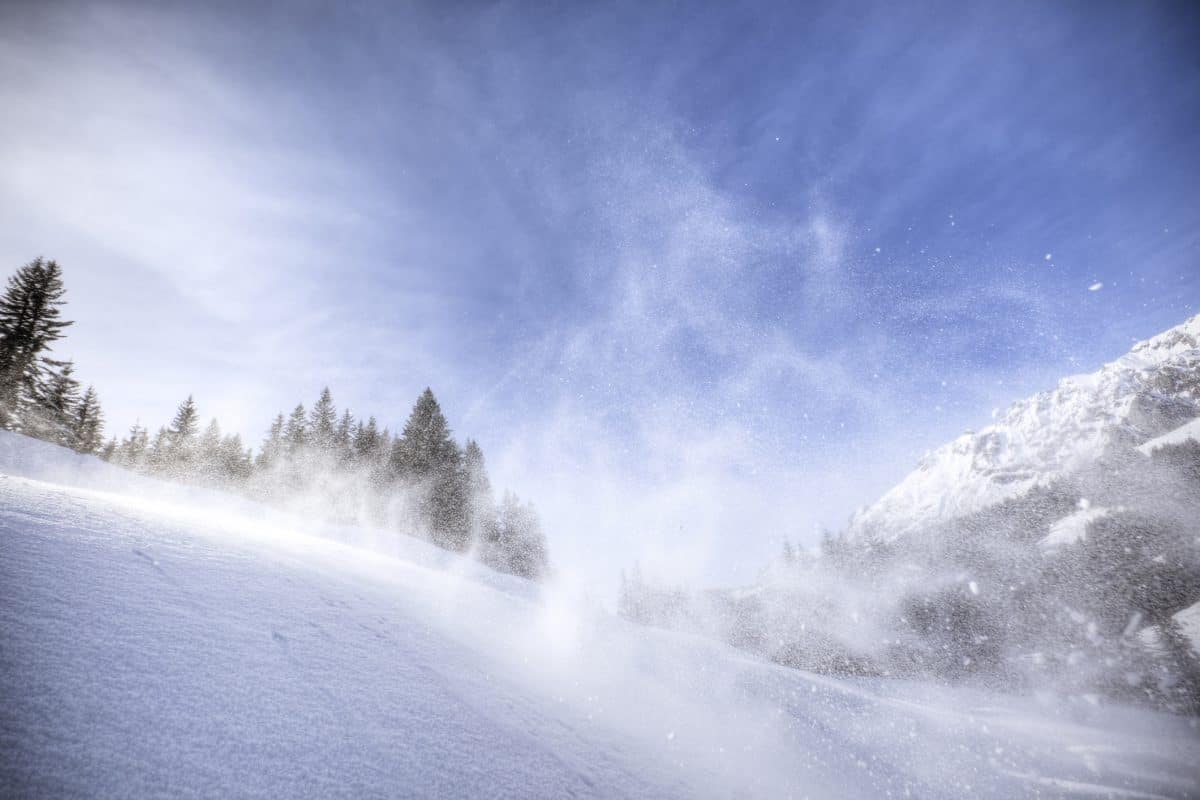
You might hear or read about frost depth calculations in different areas during the winter season. This is usually based on degree-days of freezing or the mean outside air temperature that drops below 32 degrees Fahrenheit.
There's also what you call a freezing index which just pertains to the total number of degree-days of freezing in a given winter season.
All this talk about degree-days of freezing and freezing indices refers to prevailing air temperature.
Water in the Soil
Not all soil has the same amount of water. Dry soil, since it doesn't have water in it, won't freeze.
Meanwhile, it would take 144 heat units or BTUs to freeze 1 lb of water in the soil. That's why soils that have absorbed more water will take longer to freeze.
Usually, only the upper layers of the soil are frozen. The water at the lower layers remains in a liquid state. This is why you can't assume that all layers of the soil are frozen solid.
Soil Type
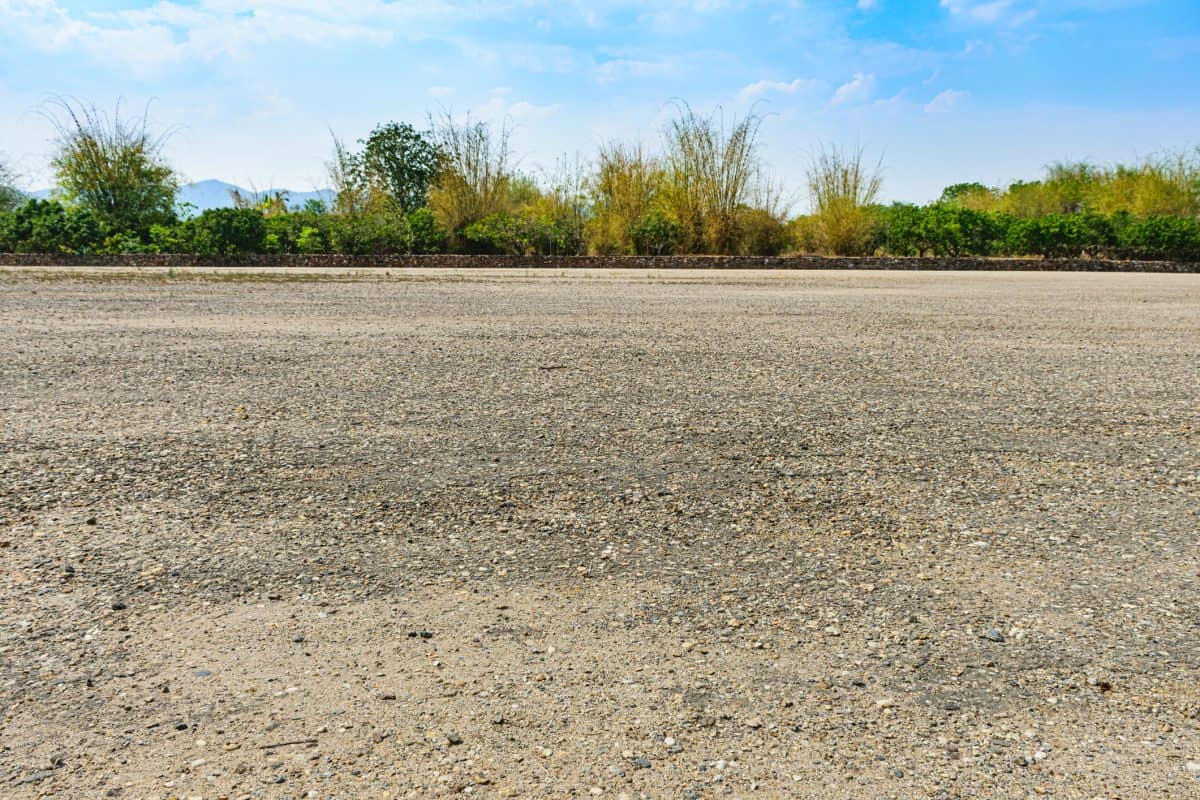
The type of soil on the ground influences the rate of freezing. In general, fine grain, silt, and sand soil would freeze faster than clay soil. The small size of the soil particles allows water to flow through the pores easily.
On the other hand, clay can absorb and retain more moisture which is why it has more water content than other soil types. It is also denser and has a higher insulation value which explains why it would take longer to freeze.
Snow Cover
Some people might think that snow since it is cold, would cause the ground to freeze.
On the contrary, snow has an insulating effect on the soil. It prevents the heat from the soil from escaping which in turn, keeps the ground beneath it from freezing.
Experts say that every 1 foot of snow would protect 1 foot of soil underneath it from freezing.
So, remember to not only base on air temperatures when predicting how fast the ground would freeze. You should also consider the soil type, its water content, and snow coverage to determine the rate of ground freezing.
How do you know if your ground is frozen?
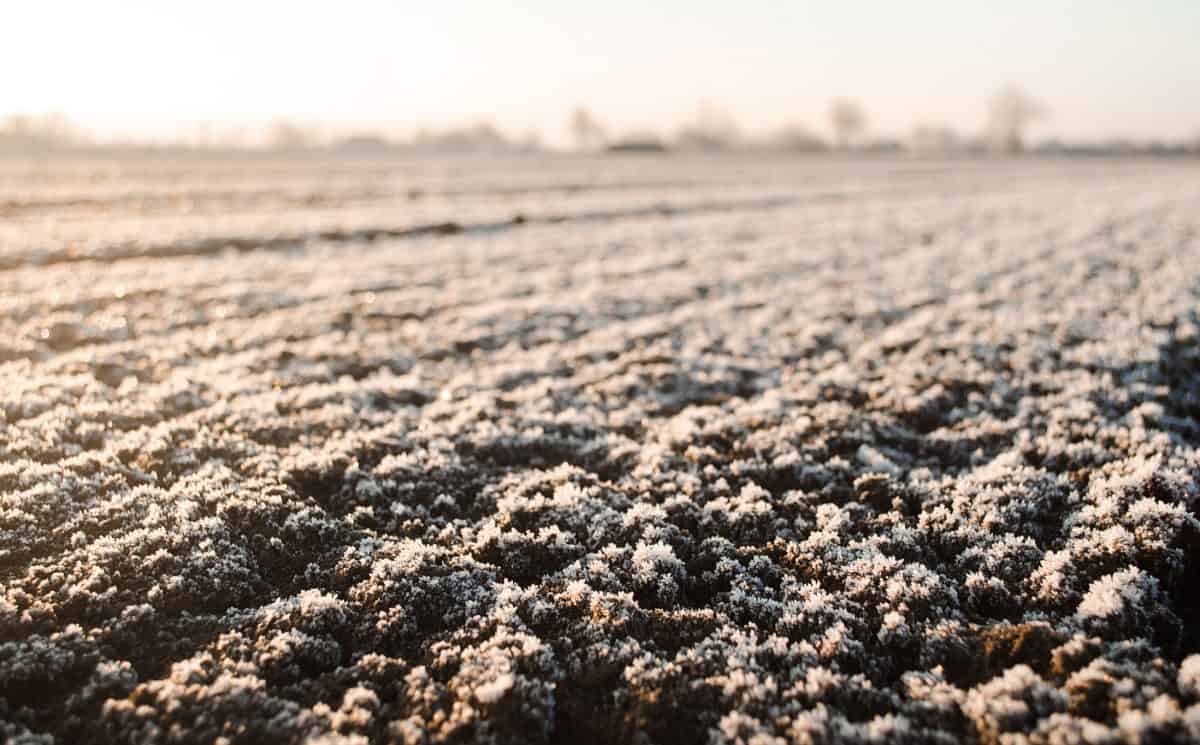
This is also a significant concern among gardeners as they cannot plant when the ground is frozen. The soil would be very tough and they won't be able to dig through it to cultivate the soil.
Since freezing happens underground, you won't be able to tell right away if the soil is frozen. Even if it seems that winter is over, the soil layers under the ground could still be frozen.
You'll only be able to determine that your ground is frozen when you feel it.
You can walk on it to be able to feel the ground. When the soil doesn't have any spring to it, then it is still frozen. Remember, frozen soil is like concrete when it comes to toughness.
You can also pat the soil in different locations. If the soil doesn't give in, that's a telltale sign that it is still frozen underneath.
Frozen ground can be very rigid so it would be futile to attempt to dig through it unless you have the right tools. This service is usually offered by professional companies.
For gardeners, the presence of frost in the soil would tell you that the soil is not yet ready for gardening.
If there's no urgent need to dig through the frozen soil, it's best to wait for the water to thaw naturally. This way, you'll also find it easier to cultivate or plant in your soil.
How can you tell if the ground has thawed?
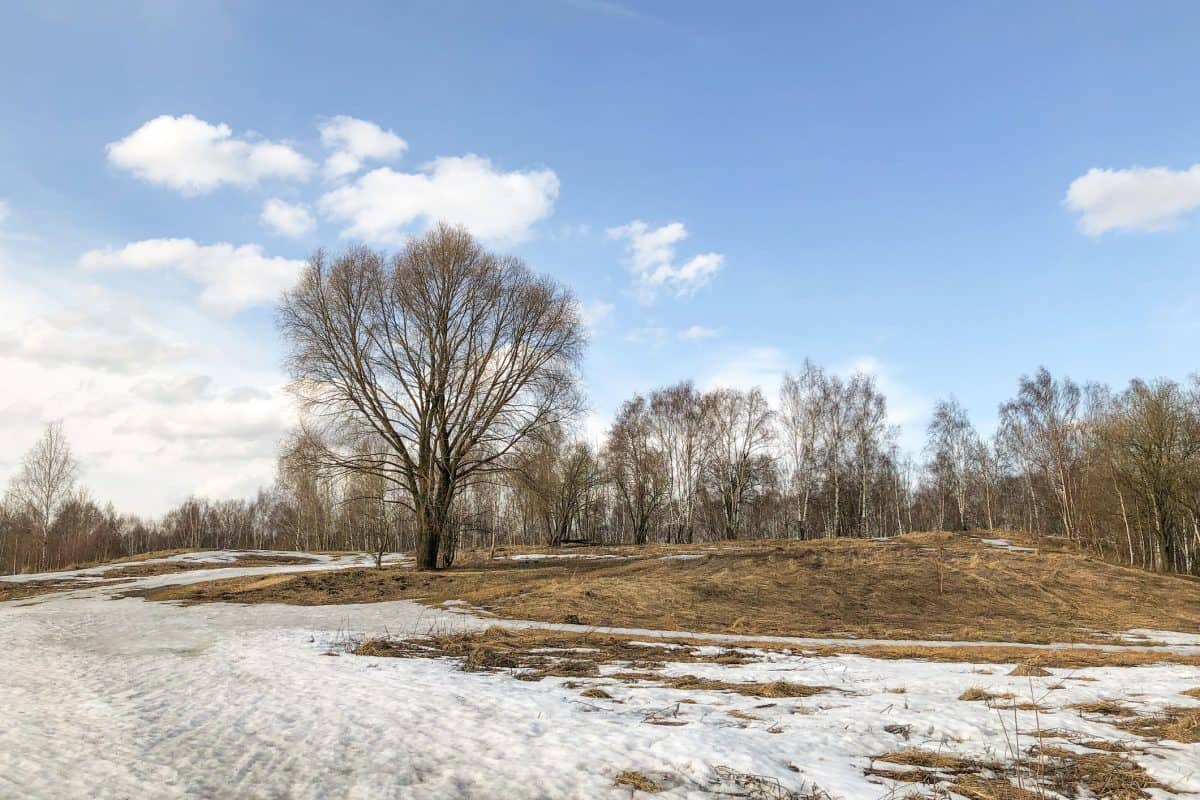
If you're excited to plant in your garden after winter is over, you have to wait until the soil is completely thawed before you start planting. Otherwise, the seeds won't grow and the young plants will just die. It'll just be a waste of effort.
As we've said earlier, wait for the ground to thaw naturally. Patience is the key. Here are some signs that'll tell you the ground is thawing.
- When the weather forecaster has announced that winter is over, then the degree-days of freezing are also done.
- You've experienced warmer weather in the past few days. The heat of the sun would penetrate the ground and unfreeze the ice beneath the soil.
- Rain also helps thaw frozen soil since it has a higher temperature than frost.
- Feel the soil. Does it yield to your touch? Is there a spring on the soil when you walk on it? Is it soft and crumbly? If you answered yes to these questions, then the soil is thawing already.
- Test the soil using your tools. It could be just the top layer that has thawed but the layers underneath are still frozen solid. You can use a shovel or spade to see if the ground would yield easily to the applied pressure.
Only you can tell if the soil has thawed and turned soft already. Wait for the right time before you start planting so that your effort won't be put to waste.
Final Thoughts
Take note that it won't just take 5 days of freezing temperatures for the ground to freeze solid. The more water in the soil, the denser the soil type, and the more snow in the ground, the longer it'll take for the soil to freeze.
To read more on related topics, feel free to visit the following posts:
How Deep Does The Ground Freeze In Winter?
How to Keep Terracotta Pots from Cracking In Freezing Weather

